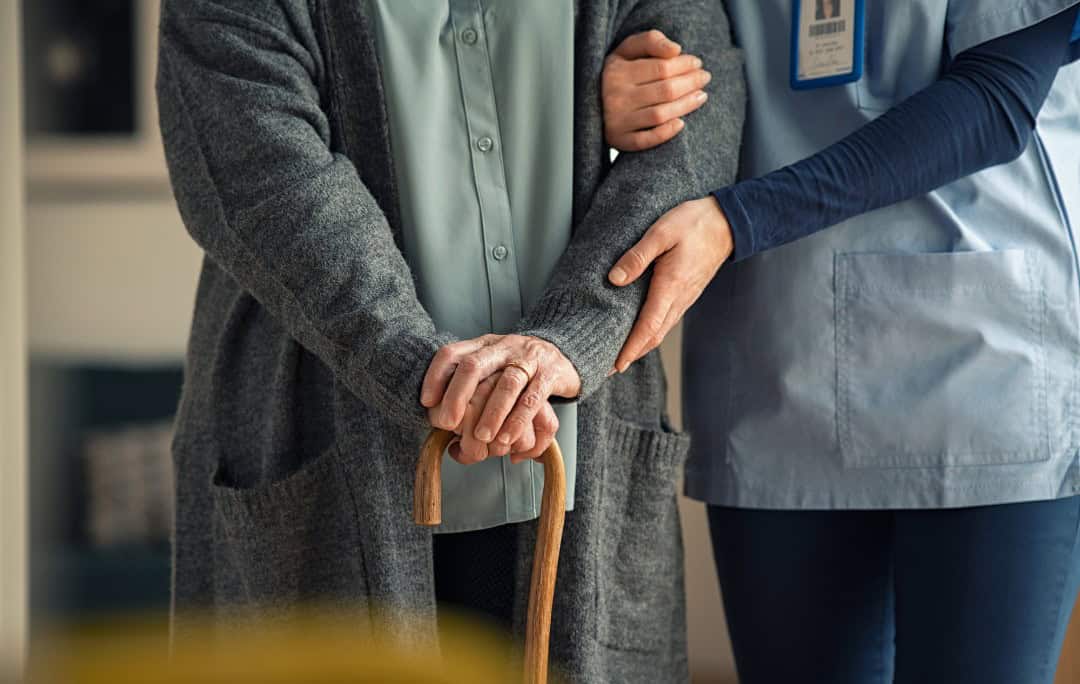No matter how old you are, getting the right amount of sleep is important, however as you get older you may experience that it’s more difficult to fall asleep or stay asleep which can then lead to poor sleep quality. However, many older people don’t have trouble sleeping, meaning that your sleep problems may not be a sign of ageing and could instead be a sign of an underlying health condition that needs attention.
What causes difficulty sleeping?
- Stress or anxiety.
- Chronic pain keeping you awake.
- The side effects of certain medications.
- Sleep disorders.
- Needing to use the toilet during the night.
- Lack of activity during the day (not being tired enough to get to sleep).
- Poor nutrition.
What are the effects of difficulty sleeping?
Whether you are getting too much or too little sleep you could start to experience the following:
- Difficulty paying attention.
- Memory problems.
- Low moral/depressed mood.
- Excessive sleepiness during the daytime.
- Lack of energy.
- Decreased immune system.
- More likely to have an accident.
How can you improve sleep quality?
Researchers say that those over the age of 65 need the same amount of sleep as younger adults, which means between 7 and 9 hours of sleep per night. Sleeping well can improve your quality of life and boost your moral, here’s some examples of how this can be done:
- Try to develop a better sleep routine that works well for you. Determine the optimal bedtime and wake-up time that suit you and commit to following this routine consistently each day. As well as determining the best times, you could also incorporate other aspects into your routine such as listening to soft music or having a bath before bed. Most importantly try not to sleep outside of this schedule, this includes napping during the day. By developing a dependable routine your body will recognise these triggers and know when it’s time to sleep.
- Check that you’re sleeping in a relaxing environment, using curtains that don’t let in much light and make sure that it’s quiet so nothing can disturb you. As well as this, try to avoid anything that is over stimulating such as watching TV or using your phone before bed. Try to leave an hour gap between the last time using your electronic advice and when you go to sleep to give you time to unwind before bed.
- Your eating habits can influence your sleep therefore it is suggested that you avoid greasy food and caffeine later in the day. If it’s possible, try to finish your evening meal several hours before you go to sleep and stop drinking caffeine at least 6 hours before bed. Smoking and drinking later in the day also interfere with your sleep.
- Exercise can encourage you to sleep as it uses up energy and makes you feel sleepy. Doing this anytime of day can help increase your sleep quality however it is recommended that you finish this at least 3 hours before you go to bed.
- Avoid stressful activities, for example if you don’t enjoy paying your bills and find it challenging, do this task earlier in the day so that it is not still on your mind before you try to sleep.
- Take your medications as prescribed. Whether this be over the counter medicines or prescription they could influence your sleep. If you feel like this is what’s causing your bad sleeping habits talk to your doctors to ask about alternative medications.
- Finally, don’t force yourself to sleep. If you’re trying to sleep but still feel awake after a while the best course of action is to get up and try to do something relaxing until you become sleepy again.
Information taken from:








